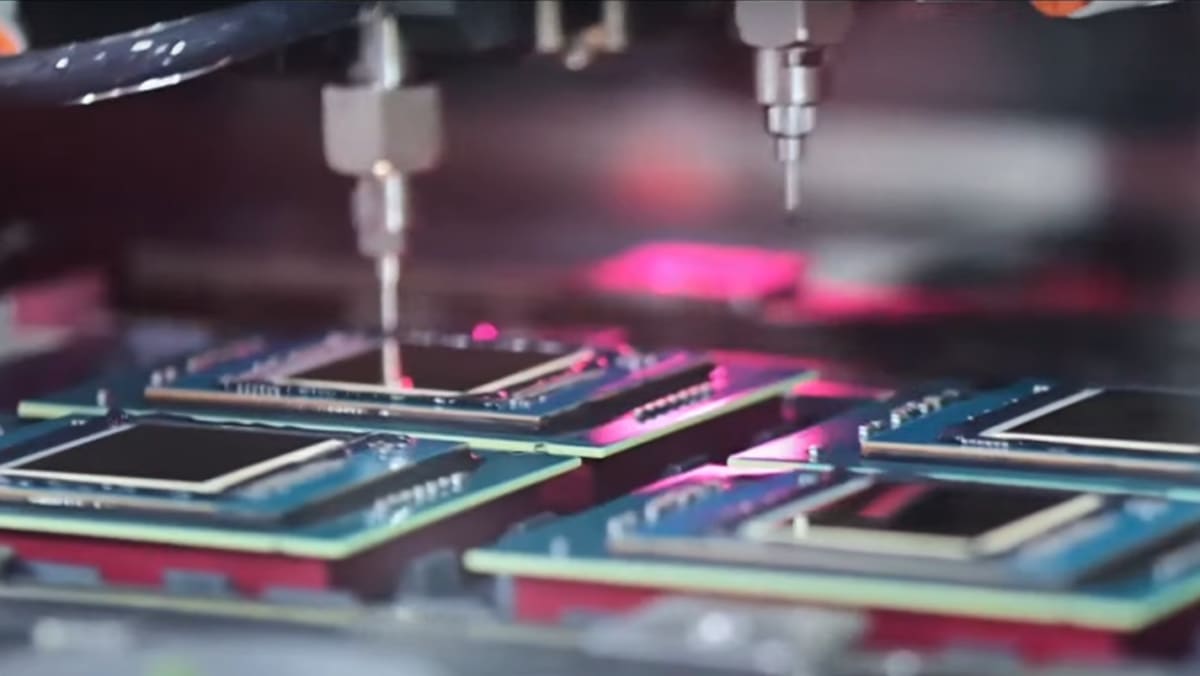


Malaysian Prime Minister Anwar Ibrahim has also been on a charm offensive, travelling overseas to woo high-tech investments.
In March, he delivered a keynote address at the annual SME Future Day 2024 in Berlin, where he gave an open invitation to German firms, as well as businesses across Europe, to invest in Malaysia.
“We are of course at your service, we will engage. When you need (the) China market, then you need an important base in Malaysia,” Mr Anwar said during the event.
The country has seen a steady increase in foreign direct investment (FDI) in the tech sector since 2021, with Intel and fellow chip giant Infineon Technologies each investing US$7 billion to go beyond packaging, assembling and testing.
Austrian tech giant AT&S is producing high-end circuit boards, while American chipmaker Nvidia is teaming up with local conglomerate YTL to develop a multi-billion dollar artificial intelligence cloud and supercomputer infrastructure in Malaysia.
However, as Malaysia looks to move up the value chain, it cannot merely roll out tax incentives given stiff competition from neighbouring Indonesia and Vietnam. It is also said to be facing constraints in its local supply chains.
Mr Ong Kian Ming, Malaysia’s former Deputy Minister of International Trade and Industry, said many companies face the challenge of getting the right kind of human resource and skilled labour to become part of the higher value-added manufacturing or services ecosystem.
“We’ve seen examples of how some Chinese companies who have come into Malaysia in the past, they do not fully integrate with the local supply chain,” he noted.
“What this means is that the local SMEs (small- and medium-size enterprises) in Malaysia and other companies, they are not able to benefit from the FDI coming into Malaysia.”
The Malaysian government is also looking within its borders and engaging Malaysian companies and investors, especially government-linked investment firms.
Mr Tengku Zafrul Abdul Aziz, Malaysia’s Minister of Investment, Trade and Industry, said the country is “institutionalising the process where we invite local companies to also have a stake in the game”.
He recently announced the government is formulating a strategic semiconductor plan to stay competitive in the industry, including updating existing laws and incentive packages.